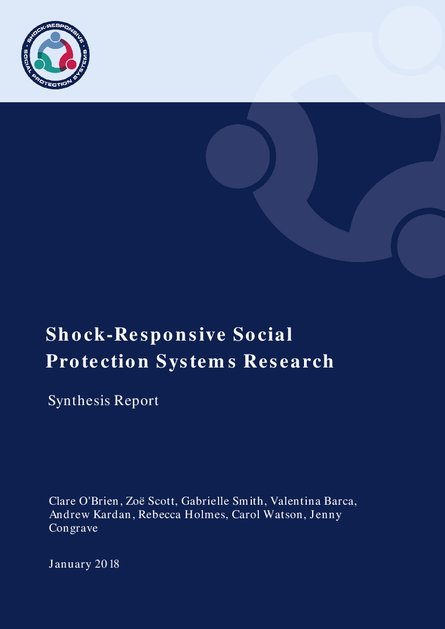
The Shock-Responsive Social Protection Systems study is a research programme (2015 to 2018) led by Oxford Policy Management (OPM), in consortium with the Overseas Development Institute (ODI), the Cash Learning Partnership (CaLP) and INASP. Its aim is to strengthen the evidence base as to when and how social protection systems can better respond to shocks in low-income countries and fragile and conflict-affected states, thus minimising negative shock impacts and reducing the need for separate humanitarian responses. The research is funded by UK Aid from the UK Government as part of the UK Department for International Development's (DFID's) Humanitarian Innovation and Evidence Programme, an initiative to improve the quality, quantity and use of evidence in humanitarian programming.
Six case studies form the core of the analysis of features of social protection systems that facilitate their use to respond to shocks, and of the ways in which social protection, humanitarian assistance and disaster risk management (DRM) systems can best work together for a more effective response. The three in-depth case studies—of Mozambique, Mali and Pakistan—explore the issue across a wide range of shocks, and review a number of social protection interventions. Two light-touch country case studies, of the Philippines and Lesotho, focus on a single shock. Finally, a light study of the Sahel region reviews regionwide mechanisms for responding to food security crises.
